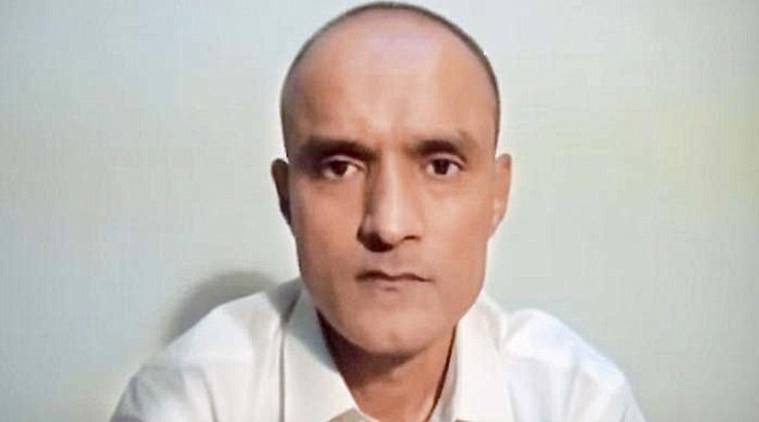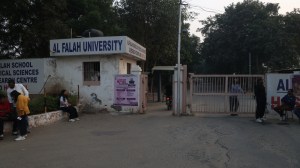INDIA RESORTED to “back-channel” efforts to “persuade” Islamabad to release Kulbhushan Jadhav, a former Indian Navy officer who is on death row in Pakistan on charges of spying and terrorist activities.
This was revealed by India’s lead counsel in the case at the International Court of Justice (ICJ), Harish Salve, a senior Supreme Court lawyer and former Solicitor General of India, during an online interaction on Saturday.

The Indian Express has learnt that National Security Advisor Ajit Doval had, in one of his interactions with then Pakistan NSA, Nasser Khan Janjua, “gently nudged” Pakistan to release Jadhav.
Responding to questions, Salve, who was speaking from London, said, “We were hoping that through the back-channel, we may be able to persuade Pakistan to let him go. If they want to say on humanitarian grounds or whatever, we want him back. We said, let him go. Because it’s become a big ego problem in Pakistan. So, we were hoping they would let him go, they haven’t.”
Read | Central Vista: Nod for new Parliament after nearly 1,300 objections
The online session was organised by Akhil Bharatiya Adhivakta Parishad, an all-India lawyers’ association associated with the RSS.
According to Pakistan, Jadhav was arrested on March 3, 2016. India was informed on March 25, 2016, when the Pakistan Foreign Secretary raised the matter with the Indian High Commissioner in Islamabad. India immediately sought consular access at the earliest.
Story continues below this ad
Jadhav was sentenced to death on charges of espionage and terrorism in April 2017. In May 2017, India moved the ICJ against the “farcical trial” by Pakistan’s military court.
Read | Bread & butter story: How kitchen items are delivered during lockdown
In July last year, the ICJ, in its verdict, directed Pakistan to allow consular access and effectively review the death sentence. The court observed that Pakistan had breached international law by not granting consular access.
But, with Pakistan not moving forward – it has allowed an Indian diplomat to meet Jadhav under watch – Salve said on Saturday, “I think we have reached a point where we may have to decide whether to go to ICJ for further consequential directions. Because Pakistan has not moved ahead.”
Story continues below this ad
He said the ICJ had rejected Pakistan’s stand that their laws provide for review and reconsideration, and said there must be “effective review and reconsideration.”
Read | Rush for seats as first train leaves from Surat, site of migrant unrest
“We have come this far, they cannot now put him (Jadhav) to death; our consular officers have to be given access,” he said.
He said Jadhav’s alleged confession must be disregarded – without which there will be no evidence. “Pakistan, till date, has refused to share the FIR, the chargesheet or the military court judgment,” he said.
Story continues below this ad
“We (India) have been writing to Pakistan asking them to show evidence against Jadhav (in order) to better assist him. They refuse to part with it. We will not give it to you (they say),” he said.
“I think they (Pakistan) have a serious problem on their hands. Other than the confession, they have nothing,” he said.
“Their domestic courts may find that sufficient. They know if it comes to a fair consideration and a fair trial, they will have no choice but to release him. Someday, we shall have him back in India,” said Salve.

 Kulbhushan Jadhav was sentenced to death on charges of espionage and terrorism in April 2017. (File Photo)
Kulbhushan Jadhav was sentenced to death on charges of espionage and terrorism in April 2017. (File Photo)






